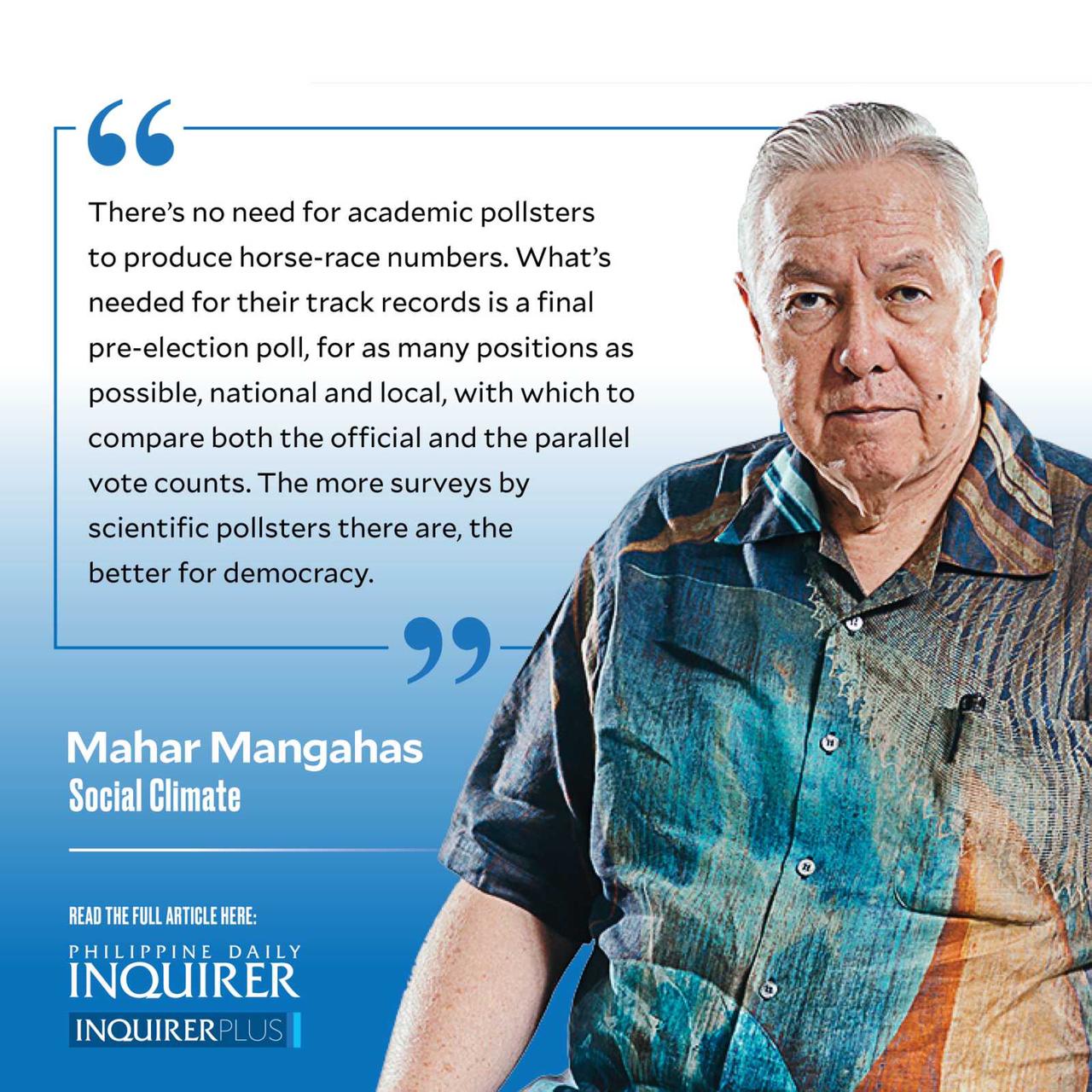
The launching by the Ateneo de Manila University (ADMU) through its School of Government of its own survey research unit, BOSES Pilipinas, in order “to advance empirical, interdisciplinary, and policy-oriented public opinion studies on democracy, governance and development,” is very welcome news.
The key word in the description is “democracy.” The Philippines is sliding perilously into authoritarianism reminiscent of the Marcos dictatorship. Expanding the institutional capacity for the people’s voices to be scientifically articulated and communicated is very important in these times.
Almost 40 years ago, the Bishops-Businessmen’s Conference for Human Development (BBC) defended its 1984 and 1985 national surveys thus: “The principle here is that the people deserve to know, and should be given the means to know, what their own collective opinion is. The people have the prerogative and the political right to use such knowledge in whatever way they see fit. The political leadership, whether majority or opposition, whether incumbent or aspiring, should not only know what the people’s opinion is, but should also know (a) that the people themselves know what this opinion is, and (b) the people know that the leadership knows what the collective opinion is …” (from my “The Philippine Social Climate,” Anvil, 1994).
Those BBC surveys were a special project of its research committee, co-chaired by Fr. Joaquin Bernas, SJ, and banker Victor Barrios, who made me survey director, knowing of my work at the Development Academy of the Philippines. Vic was the fundraiser; he and I were former students of Fr. Bernas.
The BBC surveys, presented to local and foreign media, showed that two-thirds of Filipinos opposed Marcos’ powers to legislate by decree and to detain persons by fiat. This and other findings were part of the democratic discourse in mid-1985.
In announcing his decision to call a snap election for 1986, Marcos himself claimed (falsely) that the 1985 BBC survey projected victory for him. (I assumed Marcos was bluffing until Alex Melchor, his former executive secretary, told me years later that Marcos, being sick, probably just read the BBC report wrong.)
The BBC surveys spun off into Social Weather Stations, which was registered as a private nonprofit, nonpartisan, scientific institute, i.e., an NGO, in August 1985. In 1986-87, SWS and ADMU jointly did four national sociopolitical surveys, sponsored by the Ford Foundation. After 1987, SWS and ADMU surveys were independent. ADMU did seven national surveys in 1988-1992. SWS did 308 national and 343 subnational surveys in 1988-2020.
University-based survey researchers are fully capable of scientific polling. All the Ateneos do it; I’ve personally met their staff at Naga, Davao, and Cagayan de Oro. Holy Name University, in Tagbilaran, does polls regularly, ever since getting training from SWS. More intensive reporting by such institutions will educate the people into distinguishing the genuine from the fake.
Social scientists should stress basic principles, and reject the myths about polling touted by political partisans. Polls do not create popularity; they only observe what, or who, is popular. They do not tell the people what to think; they listen to what the people say. A sponsor can request questions to ask, but cannot insist on what the answers will be. A survey institution, academic or commercial, has both the right and the duty to reject any leading questions formulated by a sponsor.
And what about the funding for academic surveys? This is where pro-democracy and principled media institutions should come in. For a university to accept commissioned research, even confidential work, is not unethical per se.
There’s no need for academic pollsters to produce horse-race numbers. What’s needed for their track records is a final pre-election poll, for as many positions as possible, national and local, with which to compare both the official and the parallel vote counts. The more surveys by scientific pollsters there are, the better for democracy.
——————
Contact mahar.mangahas@sws.org.ph

